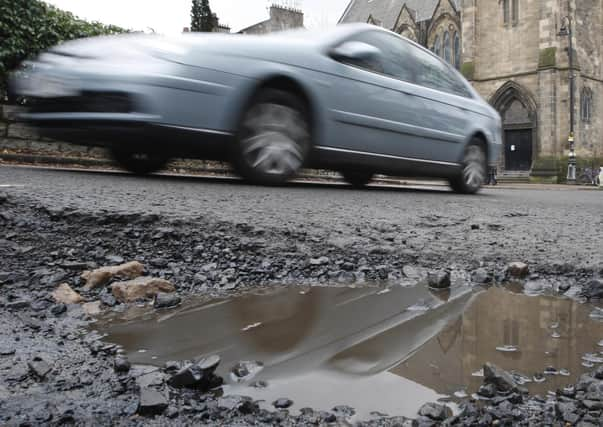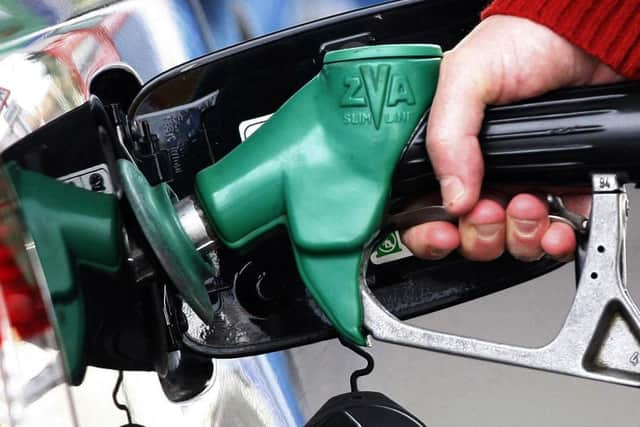Why road pricing is fairer than Budget fuel duty hike – Rory Meakin


But the reports of potential personal allowance changes or pension raids sound eerily familiar, as do warnings to raise fuel duty.
Instead of getting lost in the usual to-and-fro over the taxes we’re forced to pay on petrol, why not take a step back? What could be the long term future for taxes on driving?
Advertisement
Hide AdAdvertisement
Hide AdThere are plenty of reasons to address this question. Congestion in 2019 cost the UK economy £6.9bn, according to consultants Inrix.


Another benefit of reducing congestion is that it could help improve air quality – vehicle engines tend to run most efficiently at higher speeds so having slow-moving and stop-start traffic only increases pollution.
So what’s the solution? Last month, Parliament’s transport select committee concluded its call to evidence for an inquiry on road pricing.
The economic benefits of road pricing are well-rehearsed: driving isn’t properly priced. On most roads, at most times of day, a driver causes no congestion.
Advertisement
Hide AdAdvertisement
Hide AdConversely, in certain locations at particular times of day (typically routes to and from employment centres in the morning and evening rush hours), each driver adds to the congestion suffered by other drivers.
Despite this discrepancy, the price for using the roads remains the same at either time: an annual charge for petrol and diesel cars (arguably fuel duty too), and nothing for electric models. That is why there is a problem of congestion on roads which don’t price use at busy times.
In all sorts of sectors, prices go up at busy times and come down at quiet times. Whether it’s happy hours in bars, January sales in shops, peak fares in black cabs or the finely-tuned dynamic pricing of airliners and Uber, pricing is the best tool available for encouraging the efficient use of resources, including when it is we sit at a bar, on an aeroplane or taxi seat.
That fundamentally sound basis for road pricing is very important because the Government has started to take notice of the idea, but sadly not for the same reason.
Advertisement
Hide AdAdvertisement
Hide AdInstead, it is trying to phase out petrol and diesel vehicles to combat climate change, but has realised this will diminish the very large sums of cash they extract from drivers in motoring taxes, which are based on emissions: fuel duty and vehicle excise duty. The Government wants to replace the lost revenue from these taxes.
It is critically important that the Government abandons replacing revenue from motoring taxes as an objective of a road pricing scheme, because that would change the design and diminish the economic benefits it could provide. It also means that a road pricing scheme could be unpopular with the very motorists who could otherwise benefit.
If it is decided to raise replacement revenue, it should be raised in the most efficient way available. Drivers of electric vehicles should not have to pay a special tax just because other drivers are burning less petrol.
A well-designed road pricing scheme would set charges at the level needed to discourage congestion at busy times so that the traffic flows freely. Some motorists might switch their journeys to quieter times (or switch to other forms of transport) and enjoy lower costs as a result. Those remaining at the busy times would pay for the privilege but enjoy faster, delay-free, and less stressful journeys. A very sensible balance.
Advertisement
Hide AdAdvertisement
Hide AdAs long as the system stuck to that objective, it could be popular with drivers, if coupled with the abolition of VED and fuel duty cuts that ensured drivers didn’t pay any more as a whole. Importantly, there’d be lower or no taxes for using quiet roads and more only where necessary to address congestion.
At the Budget, fuel duty absolutely should not rise. But there are bigger questions to deal with if politicians are serious about looking at the taxes on driving without simply penalising motorists.
Road pricing has the potential to enhance economic efficiency and make Britain’s roads run smoothly. That could provide a win-win, but only if politicians don’t let themselves become led astray by the prospect of using it as a means to hike tax.
Rory Meakin is a research fellow at the TaxPayers’ Alliance.
Advertisement
Hide AdAdvertisement
Hide AdSupport The Yorkshire Post and become a subscriber today. Your subscription will help us to continue to bring quality news to the people of Yorkshire. In return, you’ll see fewer ads on site, get free access to our app and receive exclusive members-only offers. Click here to subscribe.
Comment Guidelines
National World encourages reader discussion on our stories. User feedback, insights and back-and-forth exchanges add a rich layer of context to reporting. Please review our Community Guidelines before commenting.